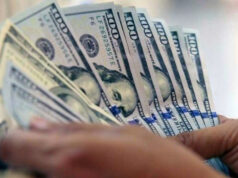Gov’t set to extend lifeline to small firms
By Beatrice M. Laforga
Reporter
THE government will provide up to P50 billion in financial assistance to micro, small, and medium enterprises (MSMEs), which will be used to subsidize workers’ wages and to provide loan guarantees amid the coronavirus pandemic.
“We will announce a program to assist the employees of MSMEs by (today), as well as to assist the MSMEs with a loan guarantee program. This will be aimed at what some people call the middle class,” Finance Secretary Carlos G. Dominguez III told reporters via Viber on Monday.
Mr. Dominguez said in a separate interview with CNN Philippines that the financial assistance will be worth between P35 billion and P50 billion.
“We are providing anywhere between P35 and P50 billion to support the employees of the SMEs on top of that, we have a program in that sector that will help employees of the smaller companies,” he said.
Of the P1.17-trillion funding program, Department of Finance (DoF) documents showed P35 billion has been allotted for wage subsidies for employees of small businesses.
Mr. Dominguez estimated that there are around 3.5 million people employed by the MSMEs around the country, but only those registered with the government will be eligible for financial aid.
“Those are the companies in our system. We have no way of identifying those who are not,” he said via a Viber message.
MSMEs generated a total of 5.7 million jobs in 2018, accounting for 63% of the country’s total employment, according to Philippine Statistics Authority (PSA). The sector also accounted for the majority or 998,000 of the 1.003 million businesses operating in the country.
Mr. Dominguez said this program will also help the middle-class since most are employed by MSMEs and have regular jobs.
“I doubt it (cash aid) at this point in time because when we define middle class, first of all, [there are] people who have regular jobs, [and] those people who are working for the MSMEs, [that] definitely will receive a cash support,” he said when asked by CNN Philippines if middle-class Filipinos can also expect cash aid from the government.
The government has allocated P205 billion as emergency cash assistance to 18 million low-income families.
Mr. Dominguez said the measures such as a 30-day grace period for payment of bank loans and credit card bills are meant to assist the middle class.
“By giving them a period to delay the payment of amortization, by not allowing banks to charge interest on interest, and this covers also the payments for credit card, those are designed primarily for middle class because it’s the middle class that have housing loans, credit card loans, so the middle class has been assisted in that fashion,” the Finance chief said.
The government has set aside a P1.17-trillion spending plan for its fight against the pandemic, with P305 billion as emergency support to vulnerable sectors such as low-income families and workers in the informal sectors, P830.47 billion to support the economy and P35.72 billion for medical expenses.
Meanwhile, the House of Representatives will hold a “modified hearing” on the government’s economic stimulus for MSMEs, House Speaker Alan Peter S. Cayetano said.
Mr. Cayetano, who is also the Defeat COVID-19 committee chairman, said he has met with Mr. Dominguez, Executive Secretary Salvador C. Medialdea, and Budget and Management Secretary Wendel E. Avisado on the stimulus package.
“They’re preparing quite a big amount then dalawa ang target, micro, small, and medium enterprises at saka ’yung mga nasa SSS (Social Security System) na diretso sa kanila,” he said during a Facebook Live on Monday.
In a statement on Monday, House Minority Leader Bienvenido M. Abante, Jr. said that while the government has implemented measures to help MSMEs temporarily, such as suspending rent and loan repayments, these may not be enough to help small companies that have had zero profits during the enhanced community quarantine.
“The BSP (Bangko Sentral ng Pilipinas) can lower interest rates for banks so these banks can lend money at lower interest rates as well, and the low interest rates on loans will incentivize more MSMEs to borrow. The DoF, on the other hand, should work on the tax breaks and other incentives for MSMEs,” he said. — with Genshen L. Espedido



